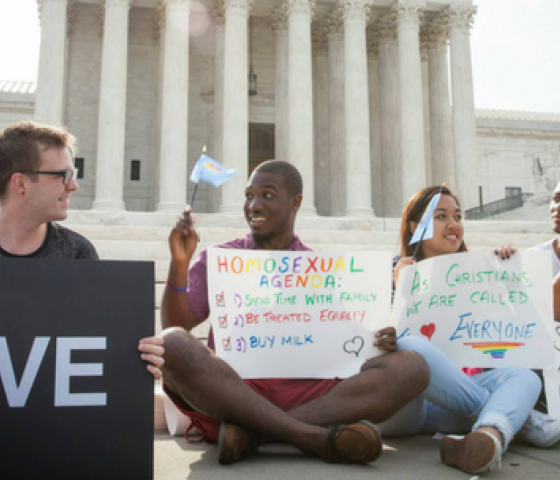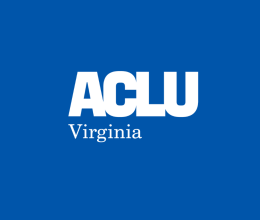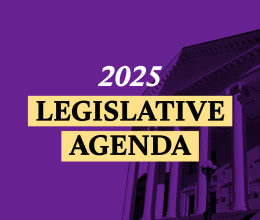By Kent Willis, Executive Director, ACLU of Virginia
When the House of Representatives approved a bill recently allowing public schools to display the Ten Commandments, I had to wonder how it was that our great experiment in religious liberty had met with such a sudden and untimely demise.
After all, was it not successful? Had not two hundred years of banning religious discrimination and keeping the government out of our private religious affairs produced a nation where more different religions are practiced by a greater number of people than any place else on earth at any time in history?
The experiment has worked because, by and large, we have followed the vision of our founders, all of whom had seen first-hand the tragic effects of religion when wielded as a weapon of the state. That is why they wrote in the First Amendment, right along with the guarantee of religious freedom, that "Congress shall make no law respecting the establishment of religion…"
If cooler heads do not prevail in the Senate, and Congress does indeed make a law allowing the Ten Commandments to be posted in our schools, we will have done a terrible disservice to our founders and ourselves.
Although the Ten Commandments are at the literal center of this debate, the real issue is whether government ought to be promoting religion at all, particularly in our public schools.
Public schools are places of learning for all students, regardless of their religious beliefs. What are young Buddhists, Hindus and Moslems to think when the official religious message of their schools is not their own? They will think, correctly, that our government is endorsing only the religions in which the Ten Commandments appear and, by default, reducing other faiths to a secondary status.
Over the last two centuries, in accordance with the wishes of our founders, the courts have concluded that religion works best when government is neutral toward it. That is, government should not take any action that specifically promotes religion, nor any that specifically hinders it.
Exactly how that neutrality manifests itself has been the subject of many debates over the years and has resulted in some hair-splitting that has left neither side entirely satisfied. For example, giving tax breaks to churches (as non-profit organizations) is acceptable but providing direct government funding to a church is not.
This principle of neutrality is commonly misunderstood when applied to public schools. Contrary to what most people believe, the Constitution protects the right of students to bring their Bibles or other religious materials to schools, to say grace at lunch, or to discuss their religious views with other students. Students may even form religious clubs that meet on school property.
School officials, however, may not take any action that promotes religion. They may not organize events with a religious function, nor are they permitted to lead students in prayer. Most certainly, they may not post the Ten Commandments on the walls.
This does not mean that schools cannot teach values. To teach-- in addition to math, English and history-- that cheating, lying, stealing and other taboos of our culture are wrong is part of showing children how to live in a society governed by law. But these values may not be taught as functions of religious faith.
Posting the Ten Commandants in schools serves no useful purpose. It demeans those who practice other religions, and it trivializes the Judeo-Christain faith by reducing it to a sound bite. If a child is to embrace the Ten Commandments or other religious tenets, he or she must experience them in the family setting and be taught what they mean by religious leaders. Those who believe that a child will suddenly decide to follow scripture because it is posted on a school wall are out of touch.
Every member of the House of Representatives who voted for the Ten Commandments bill knows that it is unlikely to survive. Somewhere along the way, at its next stop in the Senate, on the President's desk, or in court, this law will come to a halt. As recently as 1980, the U.S. Supreme Court ruled that a state law requiring the posting of Ten Commandments in Kentucky's public schools violated the principle of separation of church and state.
This is both the great shame and great history lesson of this episode.
Shameful it is because a majority of the House of Representatives, knowing that voting for the Ten Commandments bill would be a popular stand to take but that it would not survive the Senate or a legal challenge, did not mind using a document held sacred by millions of Americans for a little political gain.
But what a history lesson it should make, as well. The purpose of the Bill of Rights was to guarantee the survival of certain fundamental liberties through the ugly political periods that were certain to come in the future. By making it hard to amend the Constitution and giving only the courts the power to interpret it, our founders assured us that no mere misguided majority -- like the one that exists today in the House of Representatives --could toy with our religious liberty just to pick up a few votes for the next election.
Perhaps my predictions concerning the demise of religious freedom are wrong. No thanks, though, to the House of Representatives, which is surely putting it to the test.
NEW
Virginia students sue DoDEA schools over curriculum changes




